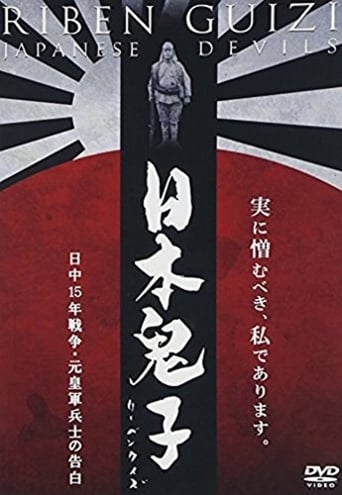kobaincito
The film is excellent in making its point. The documentary arrangement is spotless, and the color gimmick is tolerable. In fact, for such a piece of propaganda, it is a good documentary. This nonetheless does not take away the fact that for a historian, or anyone interested in world history untainted by American revisionism, the film is of a heavy bias. Sadly, not a Japanese bias but rather a North American bias. There is no background to the traditional conflicts between China and Japan, no mention of the detrimental effects of Western (UK and USA)military pressures to open their markets or most importantly the pressure of American imperialism (Hawaii, Philipines, misc naval bases) upon Japan, in fact the film is so biased that the Japanese view of the Rape of Nanking is described thus: "to them it is not an invasion, but a liberation". Now, even if it was brutal, and accepting it was an invasion, why isn't there mention of the presence of Britain in China, the country it was being "liberated" from. There is even one ridiculous mention of "the great depression which originated after the market crash in NY 1929", it makes you wonder what kind of history degree is needed to make a documentary. The film even manages to make it seem like American and British control of CHina was a positive thing but Japanese control a bad thing. I mean, if i knew just a tad less of the actual history, i would have knelt right then and there and said the pledge of allegiance. Once again, well done, but, not truthful, real or accurate. Veredict: PROPAGANDA
Gordon-11
This is a documentary about the war crimes that Japanese soldiers did during the invasion in the second world war. I expected that this film will have some historical footage, showing what the soldiers did in the invasion. However, the film did not have any historical footage, it only contained the confessions of the soldiers.The Japanese government has constantly denied that they have done anything wrong during the invasion, and even denying that they invaded China and other countries in Asia. I think this documentary is very valuable. Throughout the whole documentary, it contained the confessions of many soldiers who killed and raped civilians. They looted villages, and burned all houses they saw. They had competitions about how many Chinese people they killed each day. All the things were very horrible, and they regretted and repented that they committed such crimes.The soldiers confessed their crimes because they could not live with their conscience. Some of them had nightmares during their sleep. Others want to teach the younger generation what war is really like. War is not glorious, it is a beastly event. Every soldier had to lose their mind and become cruel. The soldiers hope that, by teaching the younger people about wars, there will not be anymore invasions by Japan in the future.One very important thing about this film that many spectators did not like is its length. It is nearly three hours long. Three hours of pure talking is very dull and boring, even though the things they are saying are very important. A lot of people left in the middle of the film.
As I previously mentioned, the film did not have any historical footage. All the crimes were described in words by the soldiers. Without some graphical help, it is a bit difficult to imagine what it was really like. I suggest that the film can add some reconstructions of the crimes, so that the messages can be brought to the spectators more vividly and effectively.
psteier
Various Japanese who served as enlisted men or low ranking officers in the Imperial Army in China and Manchuria and were later put in forced labor camps in the Soviet Union and then in Red China discuss the atrocities against civilians that they participated in.At least some of the men have already published their experiences in Japan. They are usually calm and straightforward in their presentations.The main interest is that this is seeming the only time that this sort of material has been filmed.
dgarber-1
A compelling, moving and frightening documentary, consisting of interviews with elderly Japanese veterans about their experiences in China (and Manchuria) during the war. Included in this group are former members of the infamous unit 731, known for its biological warfare tested on the Japanese.The movie clearly spells out the atrocities committed by the Japanese upon Chinese civilians, and their recollections of their feelings and motivations at the time. While such films that deal with Nazi atrocities are not uncommon, there are few other Japanese-produced documentaries of this type. The only off-putting note is when the soldiers describe their capture by the Chinese at the end of the war, and how well they were treated during their captivity -- often with more than one soldier using the exact words to describe it, and accompanied by propaganda-looking footage from the time. But this can hardly detract from the power of the testimony of these soldiers and their descriptions of the atrocities they committed.


 AD
AD
